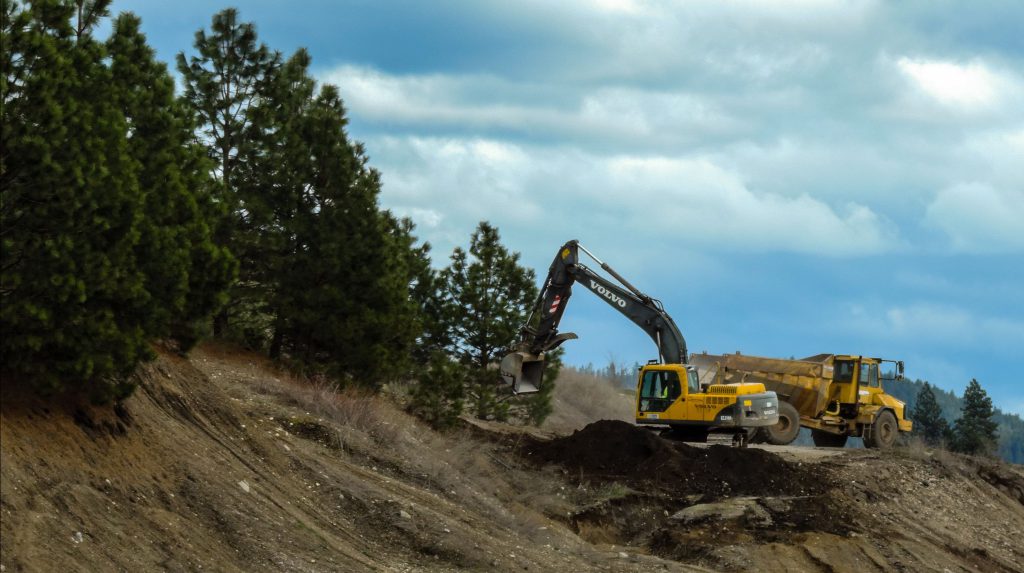High Phishing Alert: Fake Safety Audit
An email is being sent to registered entities by someone pretending to be FMCSA and notifying you need to schedule a safety audit. The link to request the safety audit has what appears to be a SAFER URL and mirrors FMCSA’s MC-150, but includes fields to enter a PIN #, EIN #, and Social Security Number. Not only is some of this information Personal Identifiable information (PII), but this information would also allow the unauthorized party to gain access to your FMCSA account. The email containing the link is also very convincing this is coming from FMCSA.
Communications relating to safety audits will typically come directly from an FMCSA dedicated mailbox, or from the entity within the State that has been assigned the responsibility to conduct the safety audit. While these emails typically end in a “.gov”, we encourage our stakeholders and customers to verify any email or communication they feel to be suspicious with the appropriate agency or contact your FMCSA Division Office directly to clarify. The Federal Trade Commission (FTC) recommends following certain procedures for email verification.
FMCSA Registration Forms Processing Timeframes
Please be advised that we are experiencing delays in processing registration forms. At the current time, the estimated processing time may take up to two weeks. Multiple submissions may cause further delays in the processing timeframe. Services are still available for you to make online updates through the FMCSA Registration System. Thank you for your patience as we work to improve your experience to keep our motor carrier community safe and thriving.
Supporting Evidence for Updating Registration Records
Effective June 29, 2023: We implemented new requirements for updating a company’s registration record. Customers are required to submit supporting evidence along with their registration forms.
• MCS-150/150B/150C, MCSA-5889 and OP-1 Forms: A copy of the Company Officer’s driver’s license is required.
• Updates to Company EIN: A copy of the company’s IRS EIN confirmation letter is required (Form SS-4).
• Updates to Company Legal Business Name: A copy of the company’s Articles of Incorporation or Amendments, as issued by the Secretary of State, is required.
Go to FMCSA Registration Forms page if you need to download a form.
Our support team is available to assist you with any other inquiries or concerns you may have. We are actively working on optimizing our procedures.
UPDATE: FMCSA Publishes Broker/Freight Forwarder Financial Responsibility Final Rule
On November 16, 2023, FMCSA published a Final Rule on broker and freight forwarder financial responsibility requirements. With this rule, the Agency has finalized regulations in five separate areas:
- assets readily available;
- immediate suspension of broker/freight forwarder operating authority registration;
- surety or trust responsibilities in cases of broker/freight forwarder financial failure or insolvency;
- enforcement authority; and
- entities eligible to provide trust funds for form BMC-85 trust fund filings.
It is FMCSA’s intent that the provisions in this rule will alleviate the effects of broker or trustee non-payment of claims. The rule is effective on January 16, 2024. The notice is available on the Federal Register at https://www.federalregister.gov/documents/2023/11/16/2023-25312/broker-and-freight-forwarder-financial-responsibility
HOW TO Define FMCSA Operating Authority Types for Freight Forwarders and Brokers
Continuing with the FMCSA’s Office of Registration “HOW TO” Video Series, we would like to present “HOW TO Define FMCSA Operating Authority (OA) Types for Freight Forwarders and Brokers”. If you’re registering with FMCSA for the first time, or if you are expanding your operations to offer additional services, you need to understand the requirements for Operating Authority (OA). In this video, we cover the types of Operating Authority (OA) for Brokers and Freight Forwarders, as these are distinct and different from Motor Carrier of Property (except Household Goods), Motor Carrier of Household Goods, and Motor Carrier of Passengers. The video summarizes regulatory guidance FMCSA issued on June 16, 2023, clarifying the definitions of “broker” and “bona fide agents”. It also explains the minimum levels of financial responsibility in the form of either a surety bond or trust fund agreement for $75,000 that both brokers and freight forwarders must maintain, as well as the appropriate levels of bodily injury and property damage insurance freight forwarders must maintain if they operate commercial motor vehicles. In addition, brokers and freight forwarders must designate a Process Agent in each State that they operate.
Now Using Login.gov
In response to the presidential mandate for Multi-Factor Authentication (MFA), in 2024, the FMCSA began its transition to Login.gov. All users with credentials for any FMCSA system will be required to use a Login.gov account to access FMCSA systems. Effective January 1st, Login.gov will solely be used for accessing the FMCSA Portal and the Unified Registration System (URS). More information will be shared as we work on the transition.
If you have an existing FMCSA Portal account, verify your FMCSA Portal Profile, ensuring your portal account’s email matches your Login.gov account. If you haven’t registered with Login.gov yet, use your Portal account email for registration. For assistance or inquiries about your Portal email, contact us.
Fraud Advisory
If you suspect your company has been victim of fraud or identity theft, we recommend using the official website of the Federal Trade Commission (FTC) dedicated to reporting fraud cases at: https://reportfraud.ftc.gov/#/
If you need assistance with your registration, please contact FMCSA by calling 1-800-832-5660.
FMCSA Position on Aggressive Telemarketing
FMCSA will not call you immediately after you submit your application for registration. However, FMCSA publicly displays motor carrier contact information (name, address, phone number) in accordance with the Government’s Open Data Policy and USDOT’s commitment in its Open Government Plan. This includes displaying contact information for all existing carriers registered with FMCSA and for all future applicants. Once this information becomes publicly available, please note that you may be contacted by private businesses and/or vendors.
While FMCSA requires evidence of financial responsibility and a process agent for many entities, the U.S. Government does not endorse and generally does not require the use of private businesses or vendors. FMCSA will not contact regulated entities through telemarketers or “robo-call” automated solicitations, nor will we request a credit card number or charge a fee for our downloadable forms. Please report aggressive or misleading telemarketers that pose as FMCSA or USDOT at: https://reportfraud.ftc.gov/#/
If you need assistance with your registration, please contact FMCSA by calling 1-800-832-5660.
FMCSA Daily Decisions on Operating Authority (CPLs, Reinstatements, Re-entitlements)
The official record of an entity’s operating authority registration is found on the FMCSA’s Licensing & Insurance (L&I) system once the certificate, permit, or license is generated. Once the L&I System reflects that FMCSA has issued the certificate, permit, or license, the motor carrier, broker, or freight forwarder is authorized to commence operations. The information in the L&I system is the authoritative source for whether an entity is authorized to engaged in non-exempt, for-hire interstate operations.
Hard copies of certificates do not represent an active authority to engage in operations. For this reason, FMCSA does not require domestic motor carriers or freight forwarders to maintain a copy of their certificate, permit, or license in the commercial motor vehicle. Enforcement of operating authority registration violations must be based on information maintained in the L&I System, not on the information in a paper copy of the certificate, permit, or license, or (for U.S. domestic motor carriers) on the absence of a paper copy in the vehicle.
Before beginning non-exempt, for-hire motor carrier, broker, or freight forwarder operations in interstate commerce, entities are required under 49 U.S.C. 13901 to obtain operating authority registration. FMCSA regulations in 49 CFR part 365 were promulgated to implement the operating authority registration requirement. Under 49 CFR part 365, entities must submit an application for operating authority registration to FMCSA for review. Under 49 CFR 365.115(b), after FMCSA review and publication in the FMCSA Register, “[i]f no one opposes the application, the grant published in the FMCSA Register will become effective by issuance of a certificate, permit, or license.”
While the above message is still accurate, FMCSA is now making available the six daily decision letters to the public the day they are generated. This prevents customers from having to wait on the hard copy letter that comes in the mail. Anyone can access these daily decision letters on our FMCSA Registration Homepage located on the left and top menu of our page. You can also find it by clicking on the “Daily Decisions” blue button below.
Credit: https://www.fmcsa.dot.gov/ February 16, 2024









